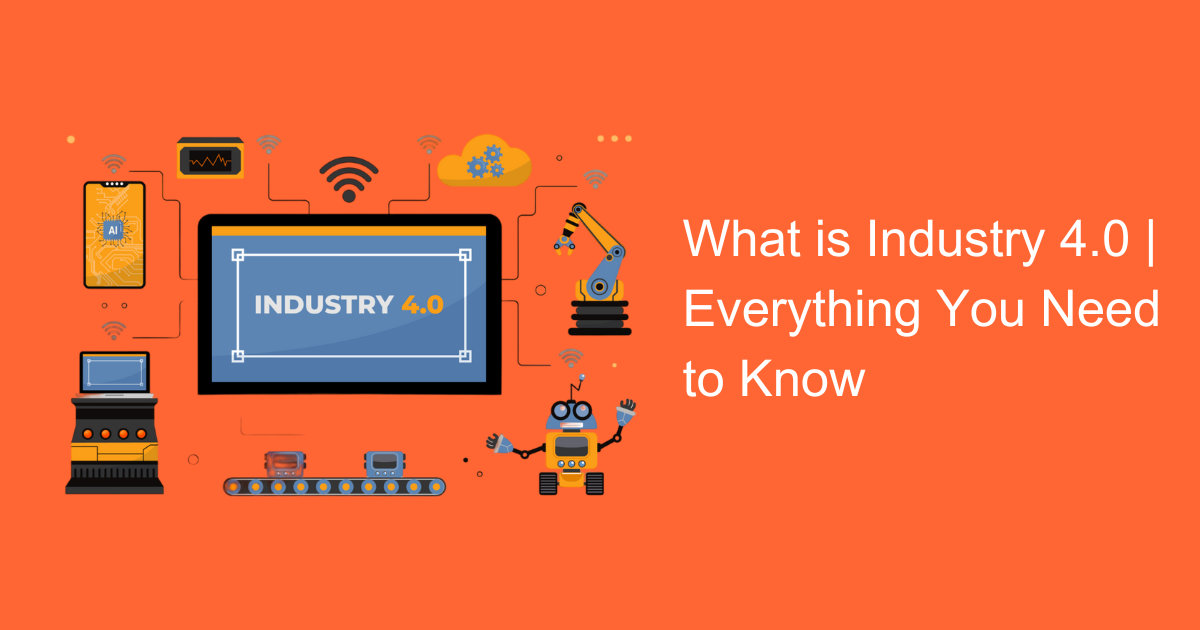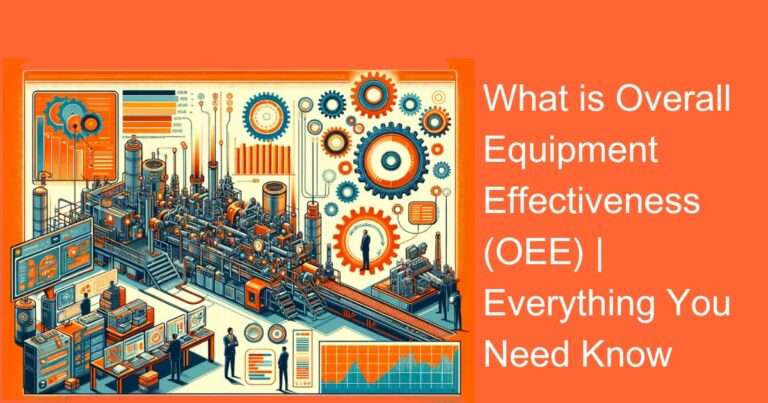Introduction
The term “Industry 4.0” has emerged as a pivotal concept in the manufacturing and industrial sectors over the past decade. It represents a new wave of technological innovation and integration that is transforming how industries operate globally. With roots in Germany, where the term originated as a part of a strategic initiative to enhance manufacturing capabilities, Industry 4.0 encapsulates the convergence of digital technologies, automation, data exchange, and advanced manufacturing techniques. This transformation is not only reshaping traditional industries but also creating new avenues for growth, efficiency, and sustainability.
In the Indian context, where manufacturing is a cornerstone of economic development, the principles and practices of Industry 4.0 hold significant potential. As India aims to become a global manufacturing hub, understanding and implementing Industry 4.0 concepts is crucial for enhancing productivity, reducing costs, and fostering innovation. This blog aims to provide a comprehensive overview of what is Industry 4.0, its components, benefits, challenges, and its implications for the Indian manufacturing landscape.
Understanding Industry 4.0
Industry 4.0, often referred to as the fourth industrial revolution, follows three previous industrial revolutions. The first industrial revolution harnessed water and steam power to mechanize production; the second utilized electric power to create mass production; the third revolution embraced electronics and information technology to automate production processes. Industry 4.0 integrates cyber-physical systems, the Internet of Things (IoT), cloud computing, and cognitive computing to create smart factories and supply chains.
Key Components of Industry 4.0
Cyber-Physical Systems (CPS):
CPS are the backbone of Industry 4.0. They involve the integration of physical processes with computer-based algorithms and networking. In manufacturing, CPS can monitor and control physical processes in real-time, providing valuable data for decision-making and operational efficiency.
Internet of Things (IoT):
IoT connects devices and systems over the internet, allowing them to collect and share data. In the context of manufacturing, IoT enables machines, sensors, and devices to communicate, leading to better monitoring, predictive maintenance, and streamlined operations.
Big Data and Analytics:
The vast amount of data generated by connected devices can be analyzed to derive insights that drive informed decision-making. Big data analytics enables manufacturers to optimize processes, enhance product quality, and improve customer satisfaction.
Artificial Intelligence and Machine Learning:
AI and machine learning algorithms can process large datasets and identify patterns, enabling predictive maintenance, quality control, and personalized production. These technologies facilitate automation and improve efficiency in manufacturing processes.
Cloud Computing:
Cloud technologies offer scalable computing resources and storage solutions, enabling manufacturers to access and analyze data from anywhere. Cloud computing supports collaboration across global supply chains and facilitates innovation in product development.
Additive Manufacturing (3D Printing):
Additive manufacturing allows for the production of complex geometries and customized products through layer-by-layer construction. This technology can reduce waste, lower production costs, and enable on-demand manufacturing.
Augmented Reality (AR) and Virtual Reality (VR):
AR and VR technologies enhance training, maintenance, and product design by providing immersive experiences. These tools can be used to simulate complex environments and visualize data, improving operational efficiency.
Industry 4.0 in the Indian Context
India’s manufacturing sector is poised for a significant transformation with the adoption of Industry 4.0 technologies. The government’s initiatives, such as Make in India, aim to boost domestic manufacturing and attract foreign investment. As India embraces digital transformation, several factors influence the implementation of Industry 4.0 in the country.
Economic Growth and Market Potential
India is one of the fastest-growing economies in the world, with a burgeoning middle class and increasing demand for consumer goods. The country’s manufacturing sector contributes significantly to GDP and employment, making it essential to modernize and adopt new technologies. Industry 4.0 can enhance productivity, reduce operational costs, and improve product quality, thereby meeting the growing demands of consumers.
Skilled Workforce and Education
The successful implementation of Industry 4.0 technologies requires a skilled workforce adept at leveraging digital tools and data analytics. The Indian government and private sector are increasingly focusing on vocational training and skill development programs to prepare the workforce for Industry 4.0. Educational institutions are also adapting their curricula to include data science, IoT, and automation, ensuring a steady supply of skilled professionals.
Infrastructure Development
The success of Industry 4.0 is closely linked to the availability of robust infrastructure. In India, the government has been investing in improving digital and physical infrastructure, including broadband connectivity and smart cities. Enhanced infrastructure will facilitate the seamless integration of Industry 4.0 technologies, enabling manufacturers to capitalize on the benefits of automation and data-driven decision-making.
Start-up Ecosystem
India’s vibrant start-up ecosystem is a significant driver of innovation in Industry 4.0. Many start-ups are focused on developing cutting-edge technologies, such as IoT devices, AI solutions, and automation tools. Collaboration between established manufacturers and these start-ups can lead to innovative solutions and accelerate the adoption of Industry 4.0 practices.
Benefits of Industry 4.0
The transition to Industry 4.0 offers numerous advantages for manufacturers in India, including:
- Increased Productivity: Automation and real-time data analytics lead to improved operational efficiency and reduced downtime, ultimately boosting productivity.
- Cost Reduction: Optimizing processes through data-driven insights can significantly lower production costs. Predictive maintenance minimizes unexpected breakdowns, reducing repair costs.
- Enhanced Product Quality: Real-time monitoring and quality control systems ensure that products meet stringent quality standards, reducing defects and enhancing customer satisfaction.
- Customization and Flexibility: Industry 4.0 enables manufacturers to respond quickly to changing consumer demands through flexible production systems and customized product offerings.
- Sustainability: By optimizing resource usage and minimizing waste, Industry 4.0 promotes sustainable manufacturing practices, aligning with global sustainability goals.
- Improved Supply Chain Management: Enhanced visibility across the supply chain enables better inventory management, demand forecasting, and logistics optimization.
Challenges of Implementing Industry 4.0
While the benefits of Industry 4.0 are substantial, several challenges must be addressed for successful implementation:
- Investment and Financial Barriers: The initial investment required for upgrading technology and infrastructure can be a significant barrier, especially for small and medium-sized enterprises (SMEs). Financial support and incentives from the government can help alleviate this challenge.
- Data Security and Privacy Concerns: The interconnected nature of Industry 4.0 increases the risk of cyberattacks and data breaches. Implementing robust cybersecurity measures and data governance frameworks is essential to protect sensitive information.
- Change Management and Cultural Shift: Transitioning to Industry 4.0 requires a cultural shift within organizations. Employees may resist changes to established processes, necessitating effective change management strategies and training programs.
- Skill Gap: The rapid pace of technological advancements means that the existing workforce may lack the necessary skills to operate new technologies. Continuous education and upskilling initiatives are crucial to bridging this gap.
- Integration with Legacy Systems: Many Indian manufacturers still rely on legacy systems that may not be compatible with modern Industry 4.0 technologies. A phased approach to integration, focusing on interoperability, can help ease the transition.
Case Studies: Industry 4.0 in India
Several Indian companies have successfully embraced Industry 4.0 principles, demonstrating the potential for transformation:
- Tata Steel: Tata Steel has implemented smart manufacturing solutions at its Jamshedpur plant, utilizing IoT and data analytics to monitor production processes in real-time. The company has reported significant improvements in operational efficiency and product quality.
- Mahindra & Mahindra: Mahindra’s manufacturing facilities have adopted advanced robotics and automation technologies, enabling them to achieve higher production rates and reduce costs. The company’s focus on sustainability aligns with Industry 4.0’s goals.
- Wipro: Wipro, a leading IT services company, has developed solutions that leverage AI and machine learning for predictive maintenance and quality assurance. Their innovations have helped clients optimize operations and reduce downtime.
- Godrej & Boyce: Godrej has embraced Industry 4.0 principles in its manufacturing processes, utilizing IoT devices for real-time monitoring and data analysis. This approach has improved efficiency and reduced waste in their production lines.
The Future of Industry 4.0 in India
The future of Industry 4.0 in India looks promising, with numerous opportunities for growth and innovation. As the country continues to invest in digital infrastructure, skill development, and policy support, manufacturers can leverage Industry 4.0 technologies to enhance competitiveness in the global market.
Government Initiatives
The Indian government has recognized the importance of Industry 4.0 and is actively promoting initiatives to support its adoption. Programs such as the National Policy on Manufacturing and Digital India aim to foster innovation, improve infrastructure, and enhance skill development. Additionally, the government has introduced various schemes to provide financial assistance and incentives to manufacturers adopting advanced technologies.
Collaborative Ecosystems
Collaboration between various stakeholders, including industry, academia, and research institutions, is vital for driving innovation in Industry 4.0. Public-private partnerships can facilitate knowledge sharing, research and development, and the commercialization of new technologies. Creating collaborative ecosystems will enable manufacturers to stay at the forefront of technological advancements.
Focus on Sustainability
Sustainability will play a critical role in shaping the future of Industry 4.0 in India. As global consumers increasingly demand environmentally friendly products and practices, manufacturers must prioritize sustainable operations. Industry 4.0 technologies can help optimize resource utilization, minimize waste, and reduce carbon footprints, aligning with the global push for sustainable manufacturing.
Conclusion
Industry 4.0 is more than just a technological revolution; it represents a fundamental shift in how industries operate and deliver value. For India, embracing Industry 4.0 is crucial to enhancing productivity, competitiveness, and sustainability in the manufacturing sector. While challenges exist, the opportunities for growth and innovation are immense.
As India continues to navigate the complexities of digital transformation, manufacturers must adopt a proactive approach to leveraging Industry 4.0 technologies. By investing in skilled workforce development, infrastructure enhancement, and collaborative ecosystems, India can position itself as a global leader in advanced manufacturing. In conclusion, understanding Industry 4.0 and its implications is not merely an option for manufacturers in India; it is a necessity for survival and success in an increasingly competitive global landscape. The future belongs to those who are willing to innovate, adapt, and harness the power of technology to drive growth and sustainability.








